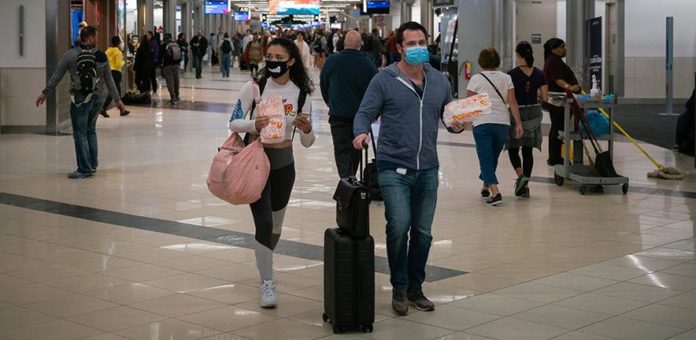Anxiety is tough to deal with at the best of time. It’s even tougher when we’re in the midst of a pandemic that is causing chaos around the globe. Dr Olivia Remes shares her top tips on looking after your mental health during this difficult period.
When you look at the news, all you hear about are the latest deaths and numbers of people infected by coronavirus, along with tips on how to avoid infection, how to protect yourself, how to avoid sick people… This is enough to make even the calmest of individuals experience anxiety, and it’s even worse if you’re dealing with a mental health condition.
One in six people has a common mental health problem such as anxiety and depression in England. If you add to that the fears and stress surrounding coronavirus, what do you get? A grim situation which makes it hard to cope and go through daily life.
Fortunately, there are ways – based on science – that allow you to take back control and lower your anxiety levels during this time of uncertainty. We’re all going through a difficult time, so it’s very important that we take care of our mental health. Here are some simple steps that will help you take back control of the situation, take back control of your life, and take back control of your mental wellbeing.
1. Stay away from the news
Constantly reading, watching, or checking the news only makes your anxiety grow stronger. Your curiosity can turn into a habit, and before you know it, your work breaks turn into checking the latest news on coronavirus on your phone.
Because it’s easier to nip a bad habit in the bud, try to limit the amount of time you spend watching the news – starting from now. It will be much easier to do this now that it will in a month’s time.
2. Distract yourself
Our minds can’t hold two thoughts at once. We can’t panic about coronavirus and at the same time be absorbed by a work project. So next time a worrying thought creeps into your mind, try to distract yourself – it can be with work, taking a shower, or even watching a silly YouTube video.
This is really effective, because it gives our minds a chance to focus on and still be consumed by something – but this time we’re choosing what it’s being consumed by rather than letting it go astray. We’re back in the driver’s seat and taking control of our minds.
Distraction is much more effective than trying to “not think” about something, because whenever we try to suppress thoughts, they come back to haunt us with a vengeance – it doesn’t work. Try this experiment: close your eyes and try to not think of a polar bear. Did it work? Of course not! In order not to think about something, you have to conjure up an image of that thing in the first place. It’s the same with coronavirus or anything unpleasant you don’t want to think about. Telling yourself that you shouldn’t be thinking about something and trying to banish unwanted thoughts makes it even worse. Distraction is far more effective.
3. Choose what you focus on
It’s a difficult time, because we’re isolated and many of us feel lonely and helpless. Instead of thinking about social isolation and the difficulties surrounding it, which can make us depressed, change focus. Is there something you’ve always wanted to do but have never had the time – a project at home or a new language you’ve always wanted to learn, for example? Could you sign up for a self-improvement webinar that allows you to gain life skills?
Here are 450 Ivy League courses you can take online right now for free.
Let go of the guilt that you could be doing something more valuable with your time – what could be better than learning how to better yourself? Now is a time to be kind to others, but also a time to be kind to yourself. And when you do this, your self-compassion grows and your mental health will improve.
4. Stay connected
Even though we’re socially distancing ourselves from other people, this doesn’t mean that we should be socially isolating ourselves. Make use of technology and FaceTime or Skype with the people you care about. One of the ways of combatting loneliness in older people is through technology, by connecting them with others they care about. You could be in separate countries, but knowing that a friendly voice is just a click away gives you something to look forward to in the day.
5. Remember: thoughts are mental events that will pass
Anxiety may get the better of you and you’re finding it hard to fall asleep at night or to concentrate during the day because of the uncertainties of the situation. You might worry that you’re going to contract coronavirus and maybe even that you’re even going to die.
A few years ago, I heard a Buddhist monk speak at the University of Cambridge. He said that our thoughts are mental events – any consuming thoughts you have now will pass just like many others did.
If you have difficulty letting go of thoughts, consider practicing some mindfulness meditation. Focus on your breaths going in and out of your lungs while gently letting go of thoughts. You’re not fighting or banishing the thoughts: you’re just trying not to feed them – instead, you’re always gently bringing your mind back to the breaths.
There are many videos online on how to do mindfulness meditation. Doing this can calm you and it can ground you.
Dr Olivia Remes is a postdoctoral researcher at the Department of Public Health and Primary Care, University of Cambridge, where she focuses on anxiety and depression.
This article appears Courtesy of Cambridge University







